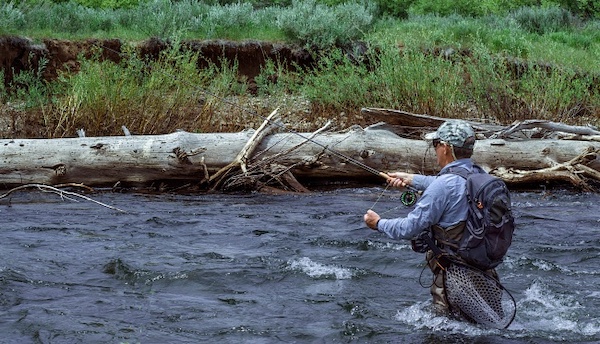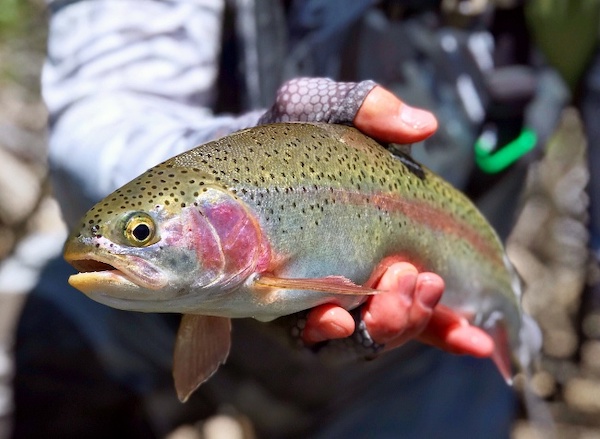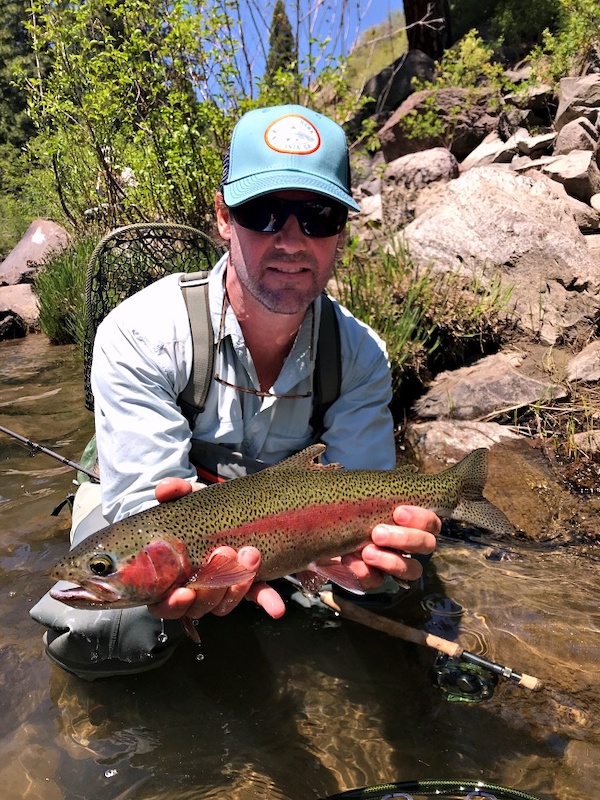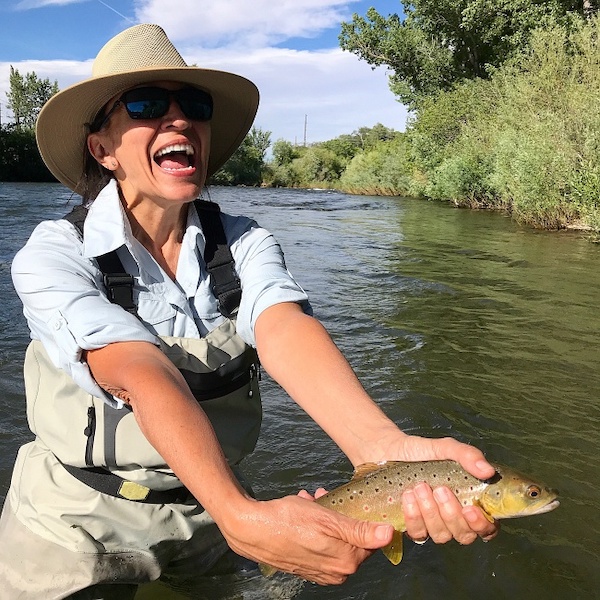
Fly Fishing Report Truckee River and area Stillwaters
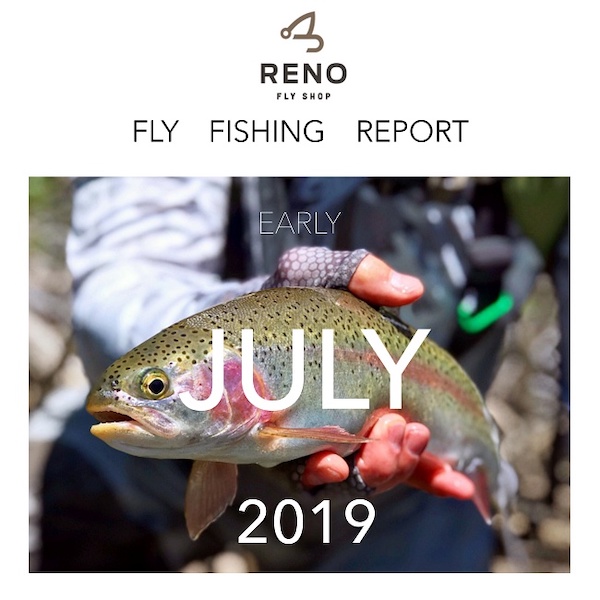
by Reno Fly Shop
7-5-2019
Website
Truckee River
The Truckee River is on fire!
The river is hovering around 600 CFS, and is in the mid to high 50’s depending on the time of the day that you are fishing. There are bugs galore, and the trout are feeding heavily. Little yellow stoneflies, caddis, and PMD’s make up the majority of the insects that the fish are feeding on. Focusing on nymphs in a size 14 and 12 have been the most effective, but with so many food items available it seems that the fish are willing to eat just about any fly that is presented well.
European Style Nymphing (ESN) has still been the most effective. Indicators are tied to the surface current are causing drag at depth. Fish are settling into faster water when they are in feeding mode. We are also seeing an early evening hatch almost every night depending on how much wind we’ve had in the previous day. Targeting slower water at the tailout of pools, or any softer water has been productive for dry fly fishing.
Perdigon Black, Spanish Bullet, Quill Jig, Hot Spot, CDC Red Tag, Hot Cheek, Mylar Prince, Tunghead Stonefly, Masked Marauder, Sculpzilla, Para Adams, Elk Hair Caddis, Stimulator
Area Stillwaters
Not a lot has changed on our local still waters. Temperatures are rising though, and fish will seek depth and cooler water earlier in the day as the surface water warms. This also means that the trout will rise later in the evening once the water cools a bit. Callibaetis hatches have still been prevalent as well as some terrestrials as we have had a windy couple of weeks.
Look for deep drops into 10 plus feet of water to target fish later in the day, and when the wind picks up search out protected coves, and other areas where the winds effect is minimal.
GUIDE TIP: wind lines collect surface food so targeting the seam between calm water and wavy windy water will usually produce fish.
Stillwater can be difficult. Its best to give a new fly, technique, or area 15-20 minutes before changing something. Changing is key to find out what the fish are really looking for in presentation, depth, and fly selection.
Red Eye Damsel, Wooly Bugger (black and olive) Para-Adams, Zebra Midge, Yankee Buzzer, Gilled Nymph, Zug Bug, Stillwater Stimi, Flying Ant, Chernobyl Hopper, Para Madam X.
Photos
Website Hosting and Design provided by TECK.net
Fish Database content provided by the Fish Reports Network.
